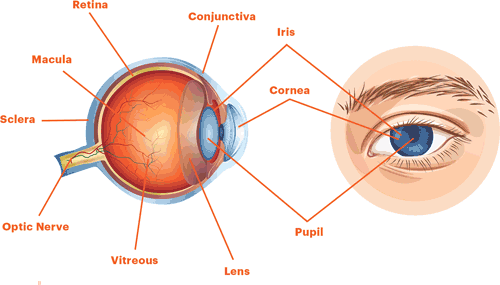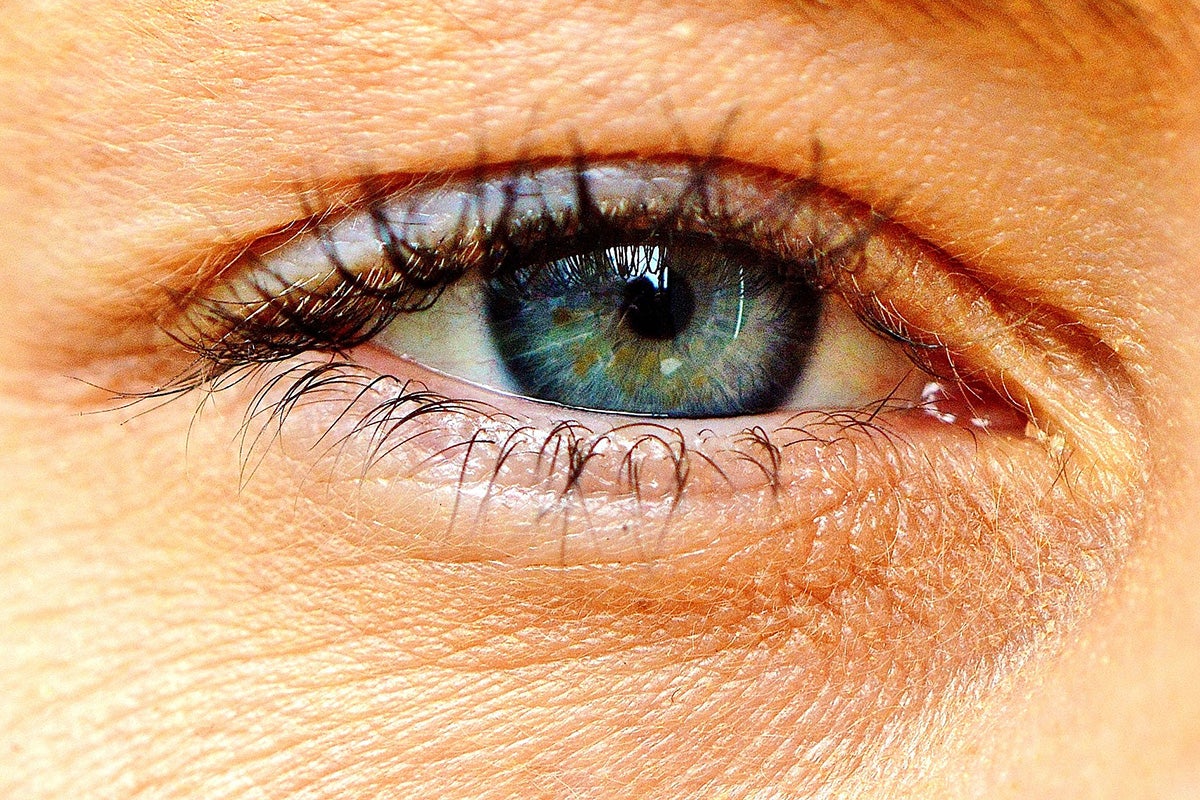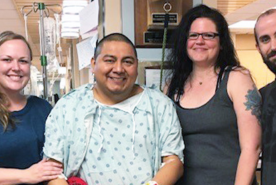July 10, 2017
Eye problems can happen without any warning signs, even if you have late stage kidney disease or kidney failure. High blood pressure and diabetes can also increase your risk for eye disease. Therefore, it’s very important to ask your nephrologist (kidney doctor) about your eyes and if you should see an eye doctor (either an ophthalmologist, a medical doctor who specializes in eye diseases and eye surgery, or, an optometrist, a doctor of optometry, who can do eye exams and vision tests, prescribe glasses, and, find and treat certain eye diseases). If you have diabetes, you should see an ophthalmologist regularly. Not taking care of your eyes can lead to a medical emergency or permanent blindness. The good news is that if you take care of problems early, you can save your eyesight.
Common eye problems for people with kidney disease or who are on dialysis

Dry, red, and sore eyes that feel gritty. These symptoms may occur because of impaired blinking and tear formation, leading to dry eyes. Extra calcium and phosphate can also settle in the eyes and cause irritation. As shown in the picture below, the cornea, conjunctiva, and sclera can be affected. Controlling calcium and phosphate levels in the blood and keeping eyes moist with lubricant eye drops can help. Problems other than kidney disease can cause these symptoms, so you need to see an eye doctor to find the right cause.
Retinopathy happens when diabetes and/or high blood pressure damage the small blood vessels in the retina. Retinopathy progresses over time and there are no symptoms until the vision is affected. Sometimes damaged vessels form scar tissue that causes a detached retina. A detached retina can lead to vision loss or blindness, and must be treated immediately. If you have any sudden changes in your vision such as flashing lights or dark spots, get to the doctor or hospital right away.
Glaucoma happens when fluid inside the eye builds up because it can’t drain well. This causes increased intraocular pressure (IOP) inside the eye. This extra pressure squeezes the blood vessels that bring oxygen and nutrients to the optic nerve at the back of the eye. The optic nerve sends signals to the brain, and the brain changes these signals into images that you see. When too much pressure builds up in the eye, the optic nerve can become damaged. This damage slows or stops the signals to the brain and can lead to partial or total vision loss. High blood pressure and diabetes may be risk factors for glaucoma. Dialysis may also cause pressure changes within the eye.
Join the NKF Blog Newsletter
Get inspirational stories and kidney disease resources delivered to your inbox every month. You'll gain practical insights and expert advice to help you better understand and manage your kidney health no matter where you are on your kidney journey. Subscribe today.
Finding eye problems
An eye exam will show how well you can see and if you have an eye disease. If there’s a problem, your eye doctor may refer you to your primary doctor. If your eye doctor is an optometrist, you may be sent to an ophthalmologist. Tell your healthcare team right away if you have:
- Blurry, double, or cloudy vision
- Pain or pressure in one or both eyes
- Trouble seeing things out of the corner of your eyes
- Floating or flashing lights
- Dark spots
Keeping your eyes healthy
Controlling high blood pressure and diabetes is important for your kidneys and your eyes. Follow your doctor’s recommendations for diet, exercise, and medicine. Check your glucose levels and blood pressure as recommended by your doctor. Quit smoking – smoking increases the risk for cataracts and glaucoma. Make sure that any drugs you take for your eyes or for any other reason are the proper dose. Kidney disease and kidney failure can affect how drugs work in your body, therefore, many drugs need to be a special dose for people with low kidney function or for those on dialysis.
The good news is that if you go to regular eye exams, you can slow or stop more damage from eye disease, and even prevent blindness.









